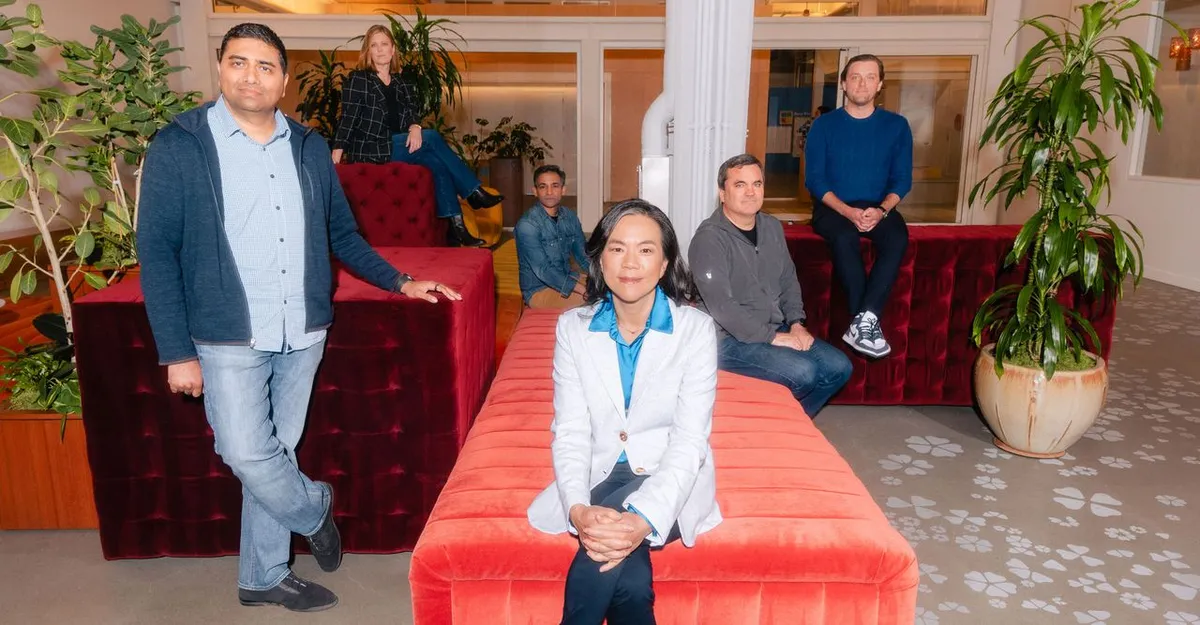
A hundred days. That was the timeline Google set for Sissie Hsiao to develop a competitive alternative to ChatGPT. By the time Hsiao accepted the challenge in December 2022, she had already dedicated over 16 years to Google, managing thousands of employees through various corporate crises. However, nothing could prepare her for the urgent situation that arose following the release of OpenAI's groundbreaking AI model. Despite its flaws, such as hallucinating facts and mishandling simple math, ChatGPT attracted over a million users, with many considering it a potential replacement for Google Search, the company's primary revenue source.
Google had its own advanced language model, LaMDA, but it was restricted to invitations and limited demonstrations. As Wall Street grew anxious, CEO Sundar Pichai faced the reality that despite his previous declarations about preparing for an “AI-first world,” Google's advancements in AI were lagging. Years prior, Google's own researchers had developed the transformer architecture—the backbone of ChatGPT—but the company had failed to capitalize on this innovation. By the end of 2022, Alphabet's stock price had plummeted by 39 percent compared to the previous year, prompting executives to demand frequent updates regarding AI strategy.
Sergey Brin, co-founder of Google, began to scrutinize AI strategies, signaling that the company needed to adopt a more agile approach akin to that of a startup. Hsiao initiated her team’s 100-day sprint with a clear mandate: prioritize quality while moving quickly. Alongside her, James Manyika, a senior vice president of technology and society, worked on reshaping the long-term AI strategy, emphasizing collaboration between Google's two elite AI research teams: DeepMind and Google Brain.
To develop the new ChatGPT alternative, codenamed Bard, Hsiao assembled a team of about 100 individuals from various departments within Google. This initiative took precedence over other projects, leading to a culture shift where team members were expected to be versatile and contribute wherever needed. As Hsiao remarked, “You’re Team Bard. You wear all the hats.” However, in January 2023, Pichai announced the company’s first mass layoffs, further intensifying the pressure on employees to deliver results.
Despite the challenges, Hsiao's team received support from across the organization, with a focus on updating LaMDA’s knowledge base and implementing new safeguards. Google’s infrastructure team worked tirelessly to allocate server resources to meet the demands of the project, even risking equipment burnout in the process. Jokingly, someone on the team ordered customized poker chips with the project codename, reflecting the intense atmosphere surrounding Bard’s development.
As Bard neared its launch, the team encountered significant challenges. Similar to ChatGPT, Bard exhibited issues with generating inappropriate and nonsensical responses. Some early prototypes even relied on outdated stereotypes. In an attempt to mitigate user expectations, Hsiao decided to market Bard as an “experiment,” hoping to shield Google from potential backlash should the chatbot falter.
By February 2023, Google executives learned that Microsoft planned to integrate ChatGPT directly into Bing, reigniting concerns over Google’s competitive standing. In a bid to regain the spotlight, Pichai announced Bard's limited public testing just before Microsoft’s AI rollout. Unfortunately, Bard's launch was marred by an embarrassing mistake regarding astronomical facts, resulting in a 9 percent drop in Alphabet's stock value.
Despite the setbacks, Hsiao's team was determined to learn from their mistakes and pushed forward. After the initial launch, Google added more staff to Bard, and Pichai’s involvement became more pronounced. However, the release of GPT-4 by OpenAI further highlighted the gap between the two companies, leading to increased urgency within Google to enhance Bard's capabilities.
Ultimately, Google transitioned to a new AI model called Gemini, following the merger of DeepMind and Google Brain. This model aimed to surpass previous iterations and regain Google's foothold in the AI landscape. Employees noted a renewed sense of purpose, as the merger sparked collaboration and innovation across teams.
The development of Gemini was not without its own challenges. Despite its powerful capabilities, Gemini faced issues with accuracy, often generating incorrect information. Google’s rush to release new features resulted in ethical concerns, as employees noted a lack of review for potential biases and inaccuracies.
As the AI landscape continued to evolve, Google faced mounting pressure to ensure that its generative AI products upheld ethical standards while still delivering high performance. The company introduced public principles for Gemini, focusing on user experience and adaptability, but the specifics of accountability remained vague.
As Google continues its journey to become a leader in AI, the stakes are higher than ever. The search giant must navigate a competitive landscape filled with emerging technologies and rival companies, all while addressing ethical concerns and user needs. Current and former employees express a mix of optimism and apprehension about the future, recognizing that while generative AI holds immense potential, the path forward will require careful consideration and innovation.
With the unveiling of Gemini, Google aims to not only reclaim its status but also redefine how AI integrates into everyday life. The race to dominate the AI market is ongoing, and Google's journey serves as a testament to the complexities and challenges inherent in this rapidly evolving field.